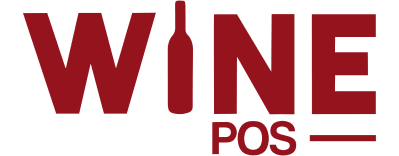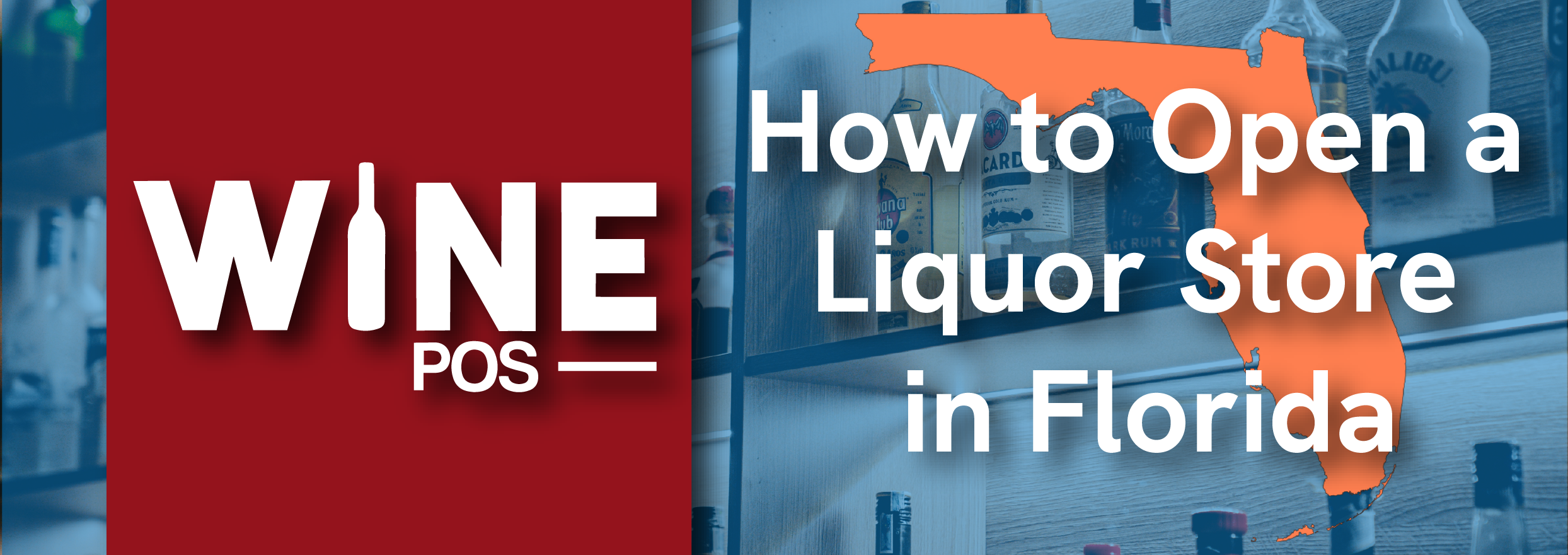Did you know that Florida’s alcoholic beverage industry brings over $1 billion in state taxes annually? The Sunshine State’s liquor business continues to thrive, making many entrepreneurs view it as their gateway to business ownership.
Starting a liquor store in Florida requires more than just stocking bottles on shelves. The process demands careful planning and knowledge to navigate strict license requirements, understand quota systems, and secure proper permits. Smart entrepreneurs can transform this challenge into a profitable venture by using the right guidance and tools like WinePOS software to manage inventory.
This detailed guide explains each step you need to open a liquor store in Florida. You’ll discover everything about costs, requirements, and practical strategies that will help launch your store successfully.
Want to learn how to open your own liquor store in Florida? Let’s delve in!
Florida Liquor License Requirements
The Florida Division of Alcoholic Beverages and Tobacco (DABT) manages liquor store licensing across the state. Business owners need proper licenses to sell alcoholic beverages.
Types of Alcohol Licenses in Florida
Florida provides several license categories for alcohol sales. These are the main types:
- Package Sales (PS): For liquor stores and retail shops selling sealed containers for off-premise consumption
- Beer and Wine (2APS): Allows sales of packaged wine and beer only
- Full Liquor License (3PS): Permits sales of spirits, wine, and beer
- Special Food Service (SFS): For restaurants with specific size and revenue requirements
Quota License System Explained
Florida’s population-based quota system controls full liquor licenses. The state releases one new license for every increase of 7,500 residents in a county. Business owners can get a quota license two ways:
- Purchase an existing license from a current holder
- Enter the annual quota license lottery
The lottery starts each year on the third Monday of August and runs for 45 days. Selected winners must submit their application within 45 days of selection. Entry costs $100, with activation fees of $10,750 plus renewal costs.
Application Process and Timeline
DABT takes 90 days to process complete applications. Store owners must provide these key documents:
- Completed DBPR application form
- Proof of right to occupy the premises
- Floor plan of the business
- Background check fingerprints
- Financial documentation
- Department of Revenue clearance
License fees change based on county population, ranging from $28 to $1,820 annually. Store owners find WinePOS software helpful to track licenses and stay compliant with state regulations.
Quick start-up options exist through temporary licenses. Businesses can start operating right after temporary approval by paying $100 or one-quarter of the annual license fee, whichever is greater.
Quota license market prices range from $75,000 to over $1 million, varying by county. These licenses are versatile and allow sales at both store locations and catered events anywhere in Florida.
Location and Market Analysis
Picking the right location is a vital factor when opening a successful liquor store in Florida. The state’s beer, wine, and liquor store industry continues to grow, with projections reaching $4.00 billion by 2024.
Zoning Requirements for Liquor Stores
Florida law lets counties and municipalities regulate liquor store locations through zoning ordinances. Local regulations typically require:
- A minimum distance of 500 feet from schools, churches, and parks
- Commercial zoning classification
- Compliance with local building codes
- Special use permits in some jurisdictions
Lafayette and Liberty counties still prohibit alcohol sales entirely.
Demographics and Competition Research
Three key counties show the highest concentration of liquor stores:
- Miami-Dade County
- Broward County
- Hillsborough County
Market saturation varies by a lot based on location. Tampa maintains 256 people per liquor store, which is by a lot lower than the national average of 5,737 people per store.
Site Selection Criteria
Successful store owners evaluate several factors before choosing a location:
- Population Density: Dense population areas support more stores
- Tourist Traffic: Tourist zones like Miami and Orlando create different opportunities than residential areas like Tampa or Jacksonville
- Parking Access: Suburban locations need dedicated parking lots while urban stores rely on nearby parking facilities
- Competition Proximity: Research existing stores to avoid oversaturation
- Storage Space: The location must have adequate storage for inventory
WinePOS software helps store owners track sales patterns and customer demographics to confirm location choices through evidence-based insights.
South Florida’s market shows distinct priorities. Tequila, vodka, and rum rank as the most popular categories. These regional variations show why getting a full picture of market research matters for new store locations.
Smart business owners track both direct competitors (other liquor stores) and indirect competitors like grocery stores or bars. They map competitor locations and study their product mix, pricing strategies, and customer service approaches.
Note that Florida’s counties can regulate operating hours through local ordinances. Some areas allow sales until 3:00 AM, while others keep stricter limits. These variations affect location profitability and play a key role in site selection decisions.
Financial Planning and Startup Costs
Opening a liquor store in Florida needs substantial capital investment. Most new store owners spend between $50,000 to $250,000 to launch their business. This investment covers startup elements and operating costs for the first few months.
Original Investment Breakdown
The startup expenses consist of:
- Inventory: $60,000 to $100,000 monthly
- Store renovations: $56 per square foot
- Insurance and permits: $1,000 to $5,000
- Point of sale system: WinePOS software to manage inventory
- Employee costs: $17.64 average hourly wage plus 25-40% more for benefits
- Marketing: 7-8% of gross revenue
Commercial space rental costs $23.98 per square foot annually. Store owners need six months of operating capital as a safety net.
Funding Options and Requirements
Business owners can get capital through channels of all types:
| Funding Type | Benefits | Requirements |
| Bank Loans | Lower interest rates | Excellent credit, collateral |
| SBA 7(a) Loans | Up to $5 million funding | Business plan, financial records |
| Equipment Financing | Quick approval | Good credit score |
| Revenue-Based Funding | Flexible payments | 6+ months in business |
Many entrepreneurs buy existing stores instead of starting from scratch. This approach comes with inventory and an established customer base.
Creating Financial Projections
Store earnings vary substantially by location. Annual profits range from $70,000 in less populated areas to $150,000 in high-traffic locations.
Smart financial planning needs:
- Detailed inventory tracking through specialized software
- Monthly cash flow projections
- Seasonal sales forecasting
- Emergency fund allocation
Store owners must budget for quota license costs, which range from $75,000 to over $1 million depending on the county. Annual renewal fees range between $28 to $1,820 based on county population.
Professional interior design and store setup services cost $100 to $200 per hour. Retail space preparation costs $2.10 per square foot for utilities and simple amenities.
Business consultants suggest keeping 10-15% extra for unexpected expenses. This buffer helps handle surprise costs when starting up.
Setting Up Your Business Structure
Starting a Florida liquor store requires proper business registration and documentation. The Florida Division of Alcoholic Beverages and Tobacco (DABT) needs specific paperwork to issue any permits.
Legal Entity Formation
Store owners must register with the Florida Division of Corporations before getting alcohol permits. The process has:
- Business name registration
- Federal Employer Identification Number (EIN)
- Sales tax registration with Department of Revenue
- Registration with Division of Corporations
WinePOS software tracks these registrations and renewal dates, which makes compliance management easier for store owners.
Required Permits and Registrations
DABT’s application package requires several key approvals:
- Health Department certification
- Zoning approval from local government
- Department of Revenue clearance
- Right of occupancy documentation
- Management contracts (if applicable)
- Fingerprints for background checks
The process takes 45 to 90 days. Store owners can move things along faster by submitting all supporting documents with their application package.
Insurance Requirements
Florida law requires specific insurance coverage for liquor stores. Store owners need:
| Insurance Type | Coverage Details | Monthly Cost |
| Liquor Liability | Covers alcohol-related incidents | $37+ |
| General Liability | Simple business protection | Varies by location |
| Property Insurance | Protects inventory and premises | Based on value |
| Workers’ Compensation | Required for employees | By payroll size |
Liquor liability insurance rates depend on:
- Business location
- Sales volume
- Claims history
- Percentage of alcohol sales
The policy protects against:
- Assault and battery claims
- Property damage from intoxicated customers
- Legal defense costs
- Medical expenses from alcohol-related incidents
Keep in mind that general liability insurance doesn’t cover alcohol-related incidents. A separate liquor liability policy remains mandatory. This coverage protects against lawsuits from incidents with intoxicated customers who cause damage or injury after leaving the store.
Smart store owners combine their insurance coverage with modern inventory tracking systems like WinePOS. This helps reduce risks and keeps accurate records of all alcohol sales.
Inventory and Supplier Management
The success of a Florida liquor store depends on proper inventory management and strong supplier relationships. State regulations directly affect how store owners handle their product sourcing and management.
Finding Reliable Distributors
Florida law states retailers must purchase alcohol exclusively from licensed Florida distributors. The state’s major distributors include:
- Breakthru Beverage Florida: Operates from Pensacola to Tampa
- Florida Craft: Offers statewide coverage with all beverage categories
- Johnson Brothers: Specializes in spirits and fine wine distribution
Small retailers can boost their purchasing power by joining pool buying groups. These groups help them access volume discounts through collective purchases.
Original Stock Planning
Distributors provide several great services to help stores manage their inventory:
- Product displays valued up to $300 per brand
- In-store product servicing for quality control
- Shelf layout assistance and design support
- Regular stock rotation and maintenance
Smart inventory planning starts with understanding the local market’s priorities. South Florida, to name just one example, shows high demand for tequila, vodka, and rum. Regional priorities should guide store owners’ stock planning.
| Inventory Component | Management Focus |
| Stock Levels | Monitor minimum quantities |
| Turnover Rates | Track sales velocity |
| Seasonal Items | Plan for demand spikes |
| Special Releases | Coordinate with distributors |
Using WinePOS for Inventory Control
WinePOS software includes specialized features for liquor store inventory management:
- Automated inventory tracking
- Sales data analysis
- Order syncing capabilities
- Marketing tool integration
Store owners can use the system to:
- Create purchase orders based on sales history
- Track customer purchases for targeted marketing
- Monitor inventory levels live
- Generate detailed sales reports
Building customer databases and tracking purchase histories becomes easier with driver’s license scanning. This feature helps with compliance requirements and marketing efforts.
Distributors often provide these in-store services:
- Product rotation on shelves
- Cooler maintenance
- Price stamping
- Display setup and maintenance
These services maintain product quality and presentation while reducing staff workload. Store owners should negotiate good payment terms and explore support services from their chosen distributors.
Store owners can improve inventory control by:
- Assessing vendor performance regularly
- Monitoring product turnover rates
- Maintaining accurate stock counts
- Tracking seasonal sales patterns
- Planning for special releases and promotions
Florida liquor stores can position themselves for success with reliable distributors, careful stock planning, and modern inventory management software. WinePOS makes these operations smoother with features designed specifically for wine and liquor retailers.
Store Operations Setup
A well-laid-out store setup builds the foundations of a successful Florida liquor store. Research shows customers spend 20% more time in stores that have appealing visual merchandising.
Store Layout and Design
Smart store design boosts profits by getting customers involved. Studies show 73% of customers come back to stores with good visual merchandising. A smart layout plan has:
- Dedicated sections for premium offerings
- Climate-controlled storage areas
- Interactive display zones
- Clear sightlines to maintain security
Store owners should set aside space for wine cellars and tasting lounges to create a welcoming atmosphere. The layout should let customers move smoothly from entrance to checkout while staff can keep an eye on security.
Hiring and Training Staff
ABC Fine Wine & Spirits, a prominent Florida retailer, puts great emphasis on detailed staff training across their 125+ stores. Store owners need to focus on:
- Product Knowledge Training
- Wine and spirits expertise
- Food pairing recommendations
- Regional priorities
- Seasonal trends
- Compliance Training
- Age verification procedures
- Legal sales requirements
- Security protocols
- Emergency procedures
Staff wages average $17.64 per hour with benefits worth 25-40% of base pay. WinePOS software makes employee training easier through built-in learning modules and performance tracking.
Security Systems Implementation
Today’s liquor stores need detailed security solutions. A complete system has:
| Component | Purpose | Key Features |
| Surveillance | Monitor store activity | HD cameras, remote viewing |
| POS Integration | Track transactions | Age verification, sales monitoring |
| Alarm Systems | Detect unauthorized entry | 24/7 monitoring, emergency response |
| Motion Sensors | After-hours protection | Glass break detection, door contacts |
Security cameras need to cover:
- Register areas to monitor transactions
- Entry and exit points
- Storage areas
- Outside perimeter
- High-value product displays
Professional security installation costs depend on store size and system complexity. Stores get benefits like:
- Remote monitoring through smartphones and tablets
- Integration with inventory management
- Video verification of incidents
- Automated alerts for suspicious activity
The security system works with WinePOS software to handle:
- Age verification tracking
- Transaction monitoring
- Inventory control
- Employee activity logging
Store owners should place high-value items where staff can watch them easily. This approach balances security needs with customer access. Regular security checks help spot weak points and keep the system working well.
Staff security training covers:
- Emergency response procedures
- Theft prevention techniques
- Customer service approaches
- Documentation requirements
Professional security companies provide:
- System design consultation
- Installation services
- Ongoing maintenance
- Technical support
- Staff training
Store owners need to budget for:
- Original equipment costs
- Monthly monitoring fees
- Regular maintenance
- Software updates
- Staff security training
The right mix of store layout, trained staff, and security systems creates a safe, profitable business. Modern POS systems like WinePOS merge these elements to improve operations while keeping security tight.
Conclusion
Starting a liquor store in Florida can tap into a billion-dollar market. Your success hinges on solid preparation in several areas. You need the right licenses and effective management systems to get started.
Smart retailers know technology drives today’s liquor business. POS software for liquor stores makes it easy to track inventory and stay compliant with regulations. The system helps boost sales through informed decisions and streamlines your daily operations while meeting all regulatory requirements.
Florida’s market rewards store owners who excel in these essential areas:
- Choosing locations based on population data
- Getting all licenses and legal paperwork in order
- Building strong bonds with suppliers
- Installing complete security systems
- Training staff properly
- Using modern inventory tracking
Store owners who follow these guidelines and use the right systems set themselves up to succeed in Florida’s expanding liquor market. A new liquor store can turn into a profitable venture with proper planning and the right tools.



